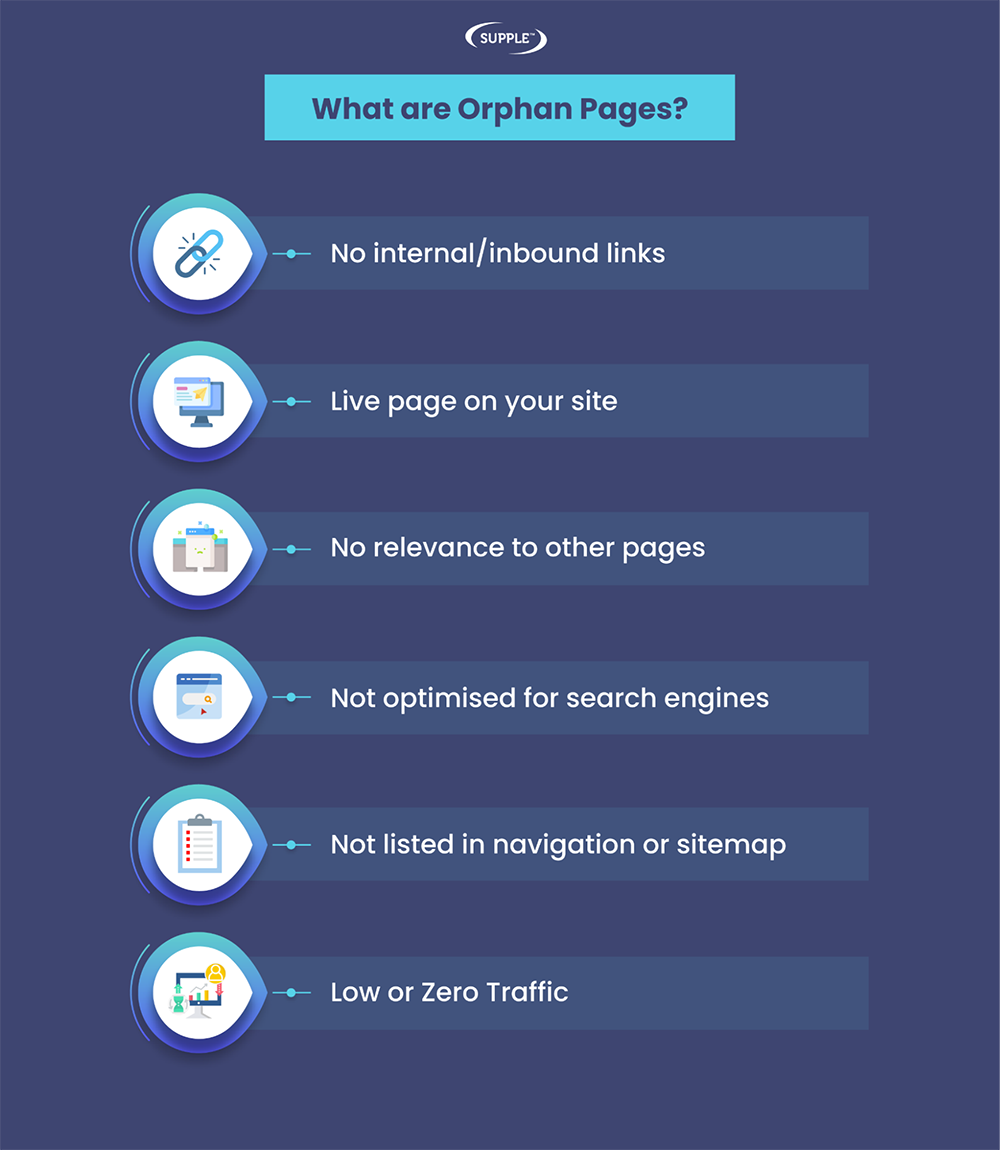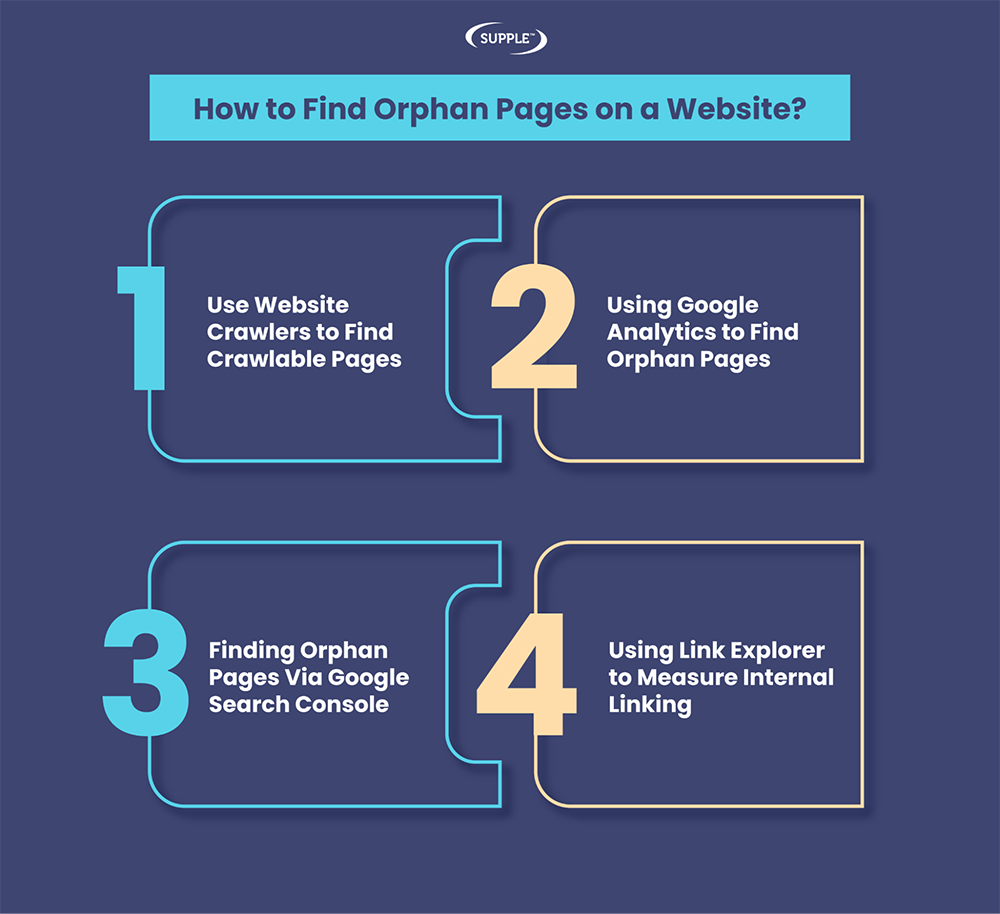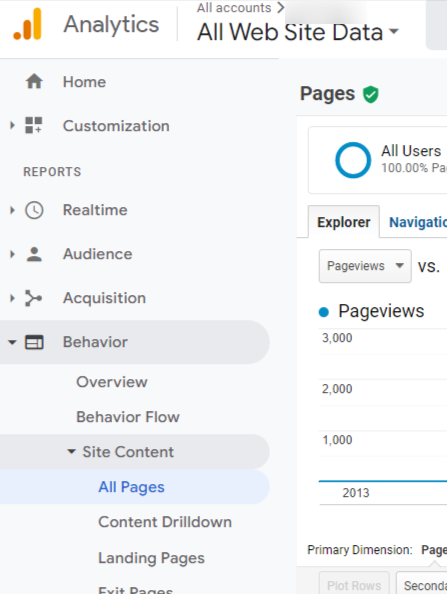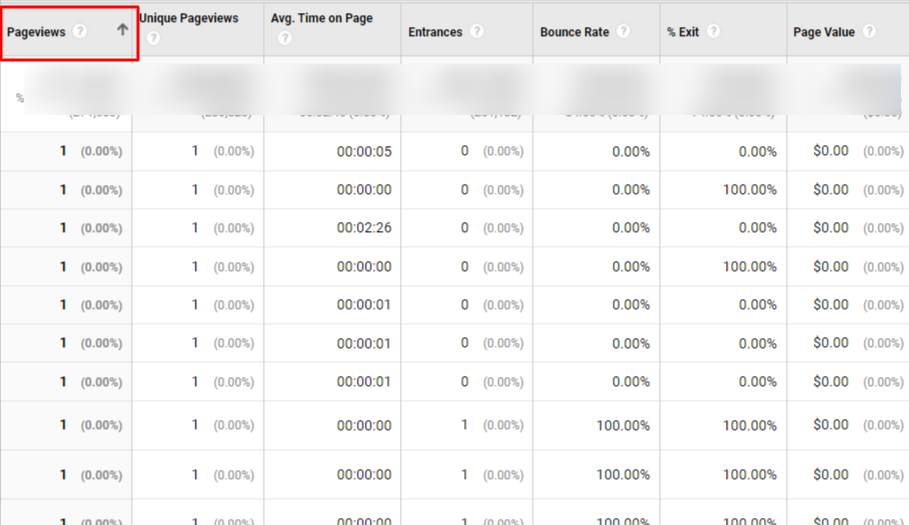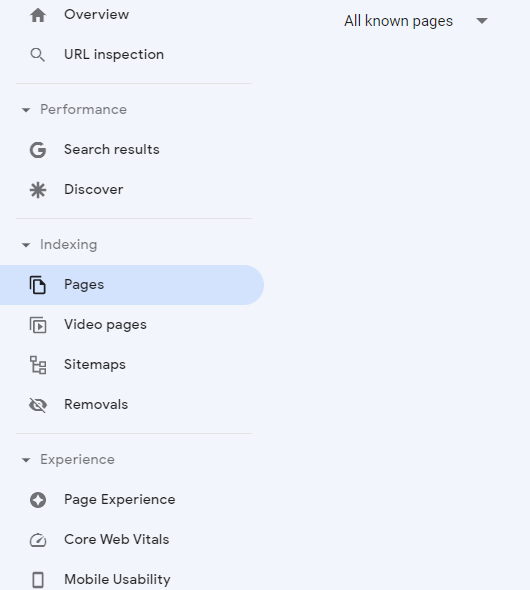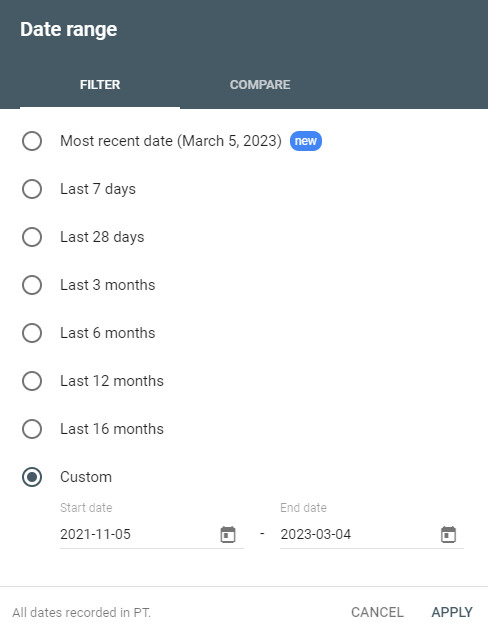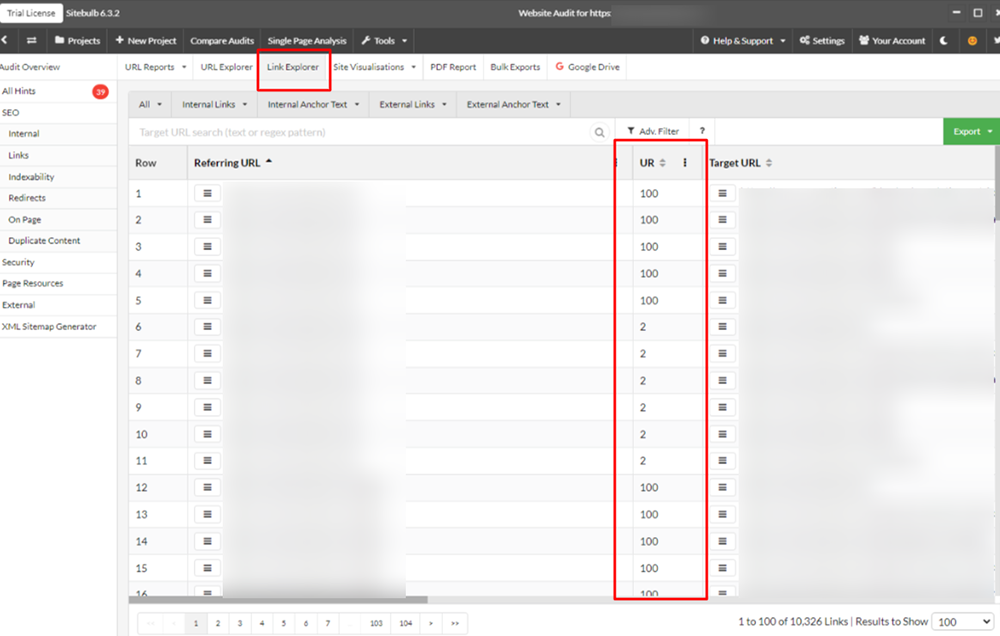Orphan Pages: Its Effect on SEO, How to Find and Fix it?
In today’s digital world, it’s crucial to have a well-structured website with quality content to rank higher on search engine result pages (SERP). For the same, it’s essential for website owners and web developers to ensure that all the pages on their sites are accessible.
However, the presence of orphan pages can hurt the SEO of your website as they are difficult for search engines to find and index. Furthermore, they lead to poor user experience as visitors get frustrated with the lack of information and dead-end links.
In this article, we’ll discuss what orphan pages are, their impact on SEO, how to find them, and best practices for not creating them. So, without further delay, let’s get started:
What Are Orphan Pages?
Orphan pages are pages on your website that are not linked to from any other page on the same site. In other words, they are stand-alone pages that have no navigation or links from other pages within the website.
This means users cannot find or access such isolated pages without knowing the exact URL. Also, it’s difficult for search engines to discover and index such pages, or are rarely indexed. In order for crawlers to find orphan pages, they need to be linked to from other pages.
Orphan pages can be problematic for website owners because they can hurt search engine optimisation (SEO) efforts and create a poor user experience.
Consider them as missed opportunities for you to rank higher and attract more traffic and customers. Thus, it’s important to link all pages on a website, so visitors can easily navigate around the site and search engines can index and rank them accordingly.Moreover, it’s easy to remedy the lost page traffic, retention, and revenue by fixing the orphan pages. That said, let’s get to know some common characteristics of these pages:
- No internal/inbound links: A defining trait of an orphan page is that neither it is internally linked from any other page on the same website nor does it have any inbound links from other websites.
- Live page on your site: You can categorise test pages or others created to serve a specific purpose as orphan pages. However, a true orphan page offers value to users and is live on a website but just untraceable.
- No relevance to other pages: Orphan pages may sometimes not have a clear purpose or relevance to the other pages on your website or its content.
- Not optimised for search engines: Orphan pages are often not optimised with best SEO practices to rank in search engine result pages.
- Not listed in navigation or sitemap: Orphan pages are not listed anywhere on the navigation menu of your site and are sometimes exempted from the sitemap.
- Low or Zero Traffic: Another common trait of orphan pages is that they get low or zero traffic from various digital channels.
How Orphan Pages are Created?
There are several possible reasons why orphan pages are created. The most common causes include site migration e.g., BigCommerce to Shopify, redesign issues, navigation changes, testing and dev pages, out-of-stock products, and others.
Apart from that, some websites dynamically generate pages that are not linked to from any other page. These are easy to forget and result in an orphan page. Sometimes, due to the developer’s mistake, some pages are accidentally created or forgotten when restructuring a site.
Some pages are created for reasons such as promotions or paid ads and landing pages for industries such as SaaS or real estate that are not linked to from any other page. Regardless of the reason they are created, orphan pages impact the search engine optimisation of your website.
How Orphan Pages Affect SEO?
Are orphan pages bad for SEO? Yes, because search engines have a hard time finding these pages since there’s no page with a link pointing to them. And if they can’t locate a page, they won’t be able to find new content or understand what a page is all about.
Here’s what Google has to say about finding new pages on the web:
We find pages by many different methods, but the main method is following links from pages that we already know about.
Google uses web automated programs called web crawlers that look for new and updated pages on the internet. So, if you create a page that is not linked to from anywhere else, is excluded from the sitemap, or does not have any backlinks, then Google can’t index it.
And since Google won’t be able to index it, the page won’t receive its PageRank — an algorithm used by Google to rank web pages on their SERP. PageRank is Google’s way of understanding the importance of a page by considering the number of links it gets.
Apart from Google, users also can’t access these pages since they can’t find them through the natural structure of your website. Thus, it won’t generate engagement or traffic of any means, which further impacts its ranking, considering if Google can index it.
Even though the orphan pages may get indexed, they still lack the authority, relevance, and quality that search engines require from web pages. Additionally, orphan pages degrade your site’s user experience as they may contain outdated content or can’t be accessed later even if they contain useful information.
Furthermore, indexable orphan pages may eat up your crawl budget and will take more resources for Google to index the pages that matter the most. Therefore, it’s essential to discover if any orphan page exists on your site and fix them for better crawling and indexing.
How to Find Orphan Pages on a Website?
There are several ways how to find orphan pages that are not linked to from any other pages on your website. Let’s glance over these to see how to find orphan pages on a website:
1. Use Website Crawlers to Find Crawlable Pages
The first thing you need is the list of all the crawlable pages on your website, which should not include Noindexed pages and pages hidden in the robots.txt file. To find this, you’ll need crawling tools such as Screaming Frog, Sitebulb, or Ahrefs.
For instance, let’s how you can find
Regardless of the tool you use, ensure it’s set to crawl and find only the indexable pages. Once the crawling completes, export the list of all the URLs as a .CSV or an Excel file. Now check these pages for http/https or www/non-www and trailing slash issues.
They add variation in the page URL and might cause duplicate content issues. But if they don’t, it’s more likely that these pages aren’t linked to from any other page and are orphaned. You can verify this by typing all the variations of pages and seeing if they all redirect to the same URL.
For instance,
- http://yourdomian.com
- https://yourdomain.com
- http://www.yourdomain.com
- https://www.yourdomain.com
All four variations of the single page should redirect to the same URL. Also, https://yourdomain.com/page1/ and https://yourdomain.com/page1 should redirect to the same URL. If any variation does not redirect to the same URL, it’s possible that these are orphan pages.
2. Using Google Analytics to Find Orphan Pages
Even if the orphan pages are not crawled by search engines, it’s possible to track and measure the traffic through Google Analytics. Wondering how?
Well, if your Google Analytics integration code is placed correctly to track the user traffic throughout your site, it’ll measure the same on each page whether it's an orphan or not. Whenever a user hits enter on any page on your website, Google Analytics will record a page view.
Here’s how you can find orphan pages through Google Analytics:
- Open your GA and navigate to Behaviour > Site Content > All Pages.
- Since the number of visits on orphan pages would be quite low, arrange the Pageviews in ascending order from low to high.
- To make this list as comprehensive as possible, set the date range even before your website existed.
- In the bottom right corner, you’ll see an option to expand the number of URLs per page and select the maximum number.
- Doing so will hopefully include most orphan page URLs that have had visitors and export this list to compare with the crawlable URL list we’ve got in the above section.
- Comparing this will give you orphan pages that exist on your site.
3. Finding Orphan Pages Via Google Search Console
Similar to GA, you can also use Google Search Console to find orphan pages on your website. You can easily do so by navigating to Performance > Pages. This will present the data, which should also include the Impressions metric.
Now change the date range as far in the past as possible to get the comprehensive list of all the URLs that have generated traffic from search.
Once you’ve done so, follow the same process as described above to find orphan pages using GSC.
4. Using Link Explorer to Measure Internal Linking
Another way to find orphan pages is to use Link Explorer tools from Sitebulb to measure the URL rank. The tool assigns a 0-100 score for each URL found through its crawlers on your site. This score represents how strong internally linked a particular page is and how likely is to rank.
The higher the score, the higher importance will be of internal links originating from those pages. A lower or 0 score means the page is not strongly internally linked and can be an orphan page.
How to Fix Orphan Page Issue?
You can fix the orphan page issue using several methods as listed below:
Improve internal linking structure: The easiest way to resolve this is to improve your internal linking structure. If you want your orphan pages to be found by users and search engines, then link to them from other website pages.
Build backlinks to orphan pages: Another way to fix orphan page issues is to build backlinks from other websites to help search engines crawl and index your pages. Further, it helps in improving your website’s search engine optimisation level.
Include in website navigation & sitemaps: Another way to get your orphan pages found by users and search crawlers is to include them in your website navigation and sitemaps. Doing so will make the task of accessing orphan page easy for users and search engines.
Archive or delete the page: If the content on the orphan page doesn’t serve any purpose, then it’s best to archive or delete them so that they are no longer part of your live site. Removing these pages will result in a 404 error, which will then drop out of the search results.
Set up a redirect: Setting up redirects from orphan pages that are no longer needed and directing them to relevant live pages will ensure that users and search crawlers can see the intended page you want them to see.
Add Noindex tag: Pages that were intentionally created as orphans and not linked to from any other page should be tagged as Noindex to prevent search engines to crawl, index, and rank them in SERP.
Best Practices to Not Create Orphan pages
While no one likes to have unwanted orphans on their website, it’s pretty easy to avoid creating them by following the below best practices:
- Optimise your page content for internal linking by making the primary keyword an anchor text. Doing so helps the linked-to page to rank for that keyword and keep it from being orphaned.
- Another best practice is to link pages deeply within your website hierarchy and not just to navigation and top-level pages.
- Utilise varying phrases and anchor texts by not stuffing keywords and overly optimising them.
- Link only a reasonable number of pages in a natural manner per page. Use your judgement and follow the thumb rule of linking 2 pages per 150 words.
- Use rel=follow to ensure the page authority flows freely from one page to the next and helps to get traction. A no follows tag would prevent crawlers from accessing the page, resulting in an orphan page.
- Do regular site audits using a tool to stay on top of not creating any accidental orphan pages.
Eliminate Orphan Pages
Orphan pages are those pages with no internal linking from any other page on the website. As discussed, these pages negatively impact on your website’s SEO and cause an enormous loss of traffic and ranking.
By using tools such as Google Analytics or GSC, you can quickly find orphan pages on your website and mitigate the issue. You can improve your internal linking or remove them entirely depending on the information they contain.
The best way to avoid orphan pages is by planning your website structure and content creation before launching your website. This is where SEO agencies like Supple can help you with your website development and SEO improvements.
Contact us to consult with our experts for your orphan page or any other SEO issues to get reliable and accurate resolutions.
DIGITAL MARKETING FOR ALL OF AUSTRALIA
- SEO AgencyMelbourne
- SEO AgencySydney
- SEO AgencyBrisbane
- SEO AgencyAdelaide
- SEO AgencyPerth
- SEO AgencyCanberra
- SEO AgencyHobart
- SEO AgencyDarwin
- SEO AgencyGold Coast
- We work with all businesses across Australia


